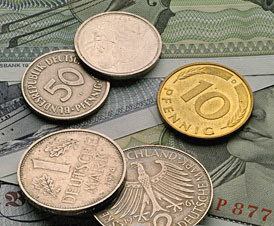German economic slump brings fears of social unrest
 Berlin - As German analysts are estimating an economic shrinkage of some 6 per cent in 2009, voices are now beginning to warn of the dangers of social unrest.
Berlin - As German analysts are estimating an economic shrinkage of some 6 per cent in 2009, voices are now beginning to warn of the dangers of social unrest.
Presidential candidate Gesine Schwan said Thursday that popular anger could grow significantly in coming months, as initial measures to counter the economic downturn wore off.
"If there isn't a glimmer of hope that the situation is improving, the mood could become explosive," the Social Democratic (SPD) candidate told the daily Muenchener Merkur.
French industrial activism crossed the border into Germany Thursday, as around 1,200 French factory workers travelled to Hanover, to protest during the annual shareholders' meeting of German car parts group Continental in Hanover.
Around 3,000 demonstrators gathered, upset at plans for Continental to close factories in Germany and France, eliminating 1,900 jobs over the next 12 months.
"We are in a cooperative position, although right now we are extremely angry," Continental's senior staff representative Werner Bischoff said of the proposed factory closures.
Earlier in the week, demonstrations in France over plans to shut down the Continental plant in Clairoix had turned violent after French workers went on the rampage.
France is experiencing a growing wave of violence as the economic crisis is forcing more and more factories to close and lay off staff.
In the last two months, there have been at least six incidents of so-called boss-napping in France, in which angry workers have held managers on site to negotiate redundancy payments or halt layoffs.
Head of the German Federation of Trade Unions, Michael Sommer, said an economic contraction of six per cent was comparable to the 1930s, during an interview with German state television Wednesday evening.
In the 1930s, Sommer said, this led to "known consequences, referring to the rise to power of the Nazis.
"We need to do everything to secure employment," Sommer said, as there was a risk that people might turn their back on politics or become radicalized.
In contrast to previous years, he said the recession wasn't just affecting the "marginal areas of society, but also the classical core areas of workers, employees and small businesses.
"This is a concoction which is really difficult if we don't control it," Sommer added.
Sociologist Dieter Rucht said while there may be more protests, this does not mean Germany is facing social unrest. "To speak of threatening unrest is part of a political game, to put pressure on the opposite side," the professor told German Press Agency dpa.
Sommer has been campaigning for a third economic stimulus package to safeguard jobs.
The International Monetary Fund also said Wednesday that Germany could do more to counter a 5.6-per-cent economic contraction.
Chancellor Angela Merkel's government again ruled out new steps to boost public spending to spur economic growth on Wednesday, during talks with business and labour leaders in Berlin.
The meeting was the latest sign that the economic downturn has moved to centre stage in the campaign for Germany's September election as Merkel has attempted to sharpen her crisis management credentials.
Rucht said the fact that the government was already taking measures to counter the recession was dampening the risk of unrest. The politics is taking the wind out of the sails of the protest," the sociologist said. (dpa)